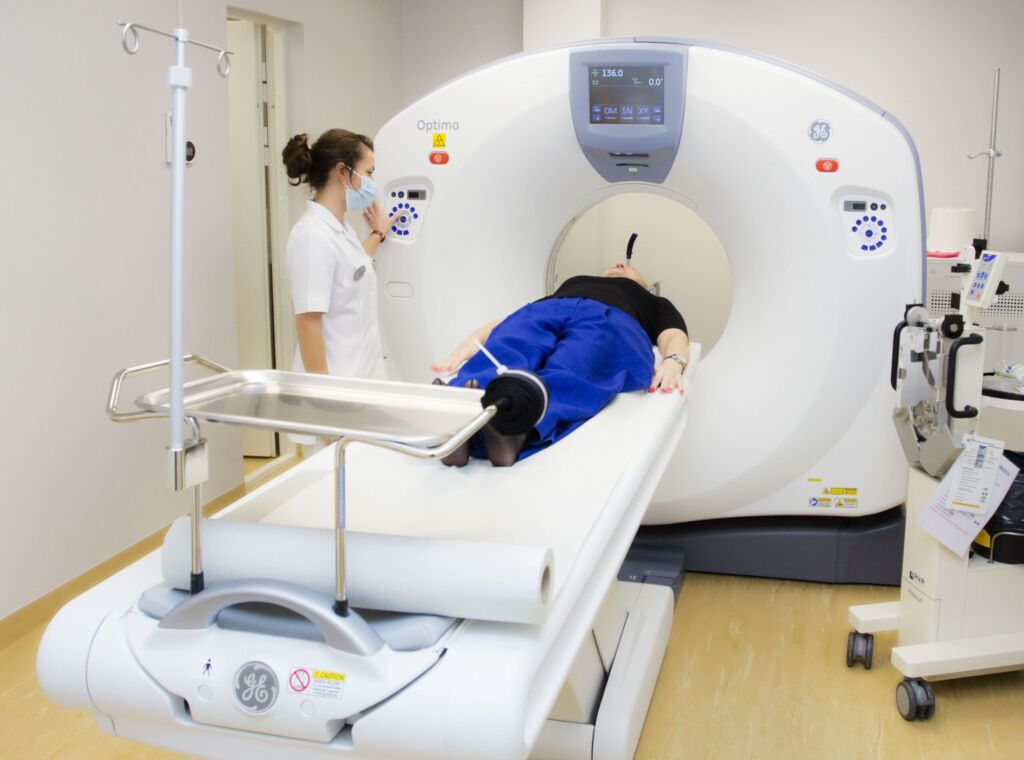
Uuringud ja diagnostika

Pakume nii tasulisi kui Tervisekassa kindlustuse raames teostatavaid uuringuid. Medicumis on olemas radioloogia osakond, labor ja mitmed teenused tervise uurimiseks.
Allergiauuringud
Allergia ehk ülitundlikkuse korral reageerib organism ägedalt mingile välisele või organismis olevale tegurile, mis tavaliselt sellist reaktsiooni ei põhjusta. Allergia väljendub mitmekesiste sümptomitena: nohu, lööbe, hingamisraskuse, sügeluse, kõhulahtisusena, anafülaksiaga jpm. Ülitundlikkus võib tekkida väga paljude asjade suhtes, näiteks toit, ravimid, putukamürk, sisse hingatavad osakesed jpm.
Allergiauuringu eesmärk on tuvastada või mõõta inimese organismi reaktsiooni erinevatele allergeenidele. Allergia põhjustaja kindlakstegemiseks kasutatakse nahatorketeste või vereproovi, millega saab määrata IgE antikehade olemasolu, mis on seotud allergiliste reaktsioonidega.
Vastunäidustused
Teatud ravimite, eriti antihistamiinide, kasutamine võib mõjutada allergiateste tulemusi. Enne allergiauuringuid tuleb arstiga arutada ravimite võtmist ja võimalikke vastunäidustusi.
Enne uuringut
Kui tehakse toiduallergiateste, võib olla vajalik piirata teatud toitude tarbimist enne uuringut.
Uuringu ajal
Nahatorketesti puhul kantakse väikesed kogused erinevate allergeenide ekstrakte nahale, tavaliselt käsivartele. Torketesti tulemust hinnatakse 15-20 minuti pärast, test on positiivne kui ilmnevad nahareaktsioonid, nagu punetus või turse (taanduvad umbes tunni möödudes).
Hinnakiri
| Teenuse / uuringu nimetus | Teenuse kood | Hind |
|---|---|---|
| Labor | ||
| Allergia uuringud | ||
| Allergeeni komponendi IgE | 66708 | 16.50 € |
| Allergeenide segu vastane IgE (paneel) | 66708 | 16.50 € |
| Allergeenspetsiifiline IgE | 66707 | 11.70 € |
| Eosinofiilsete granulotsüütide katioonne proteiin | 66707 | 11.70 € |
| Üld IgE | 66706 | 9 € |